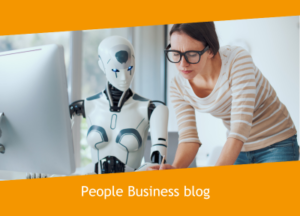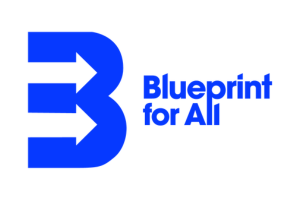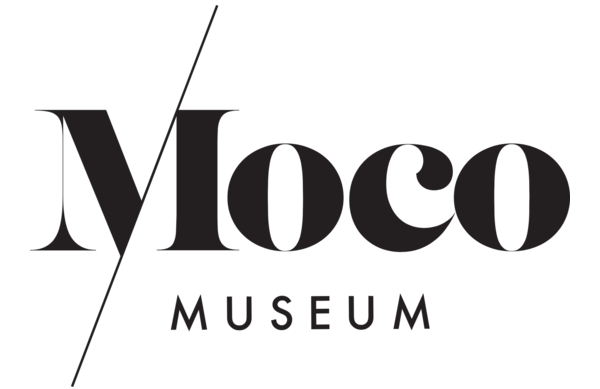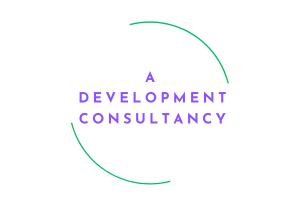Why AI in HR needs human oversight: When smart isn’t good enough

Artificial Intelligence (AI) is transforming the workplace at a pace few could have imagined a decade ago. From automating recruitment processes to generating performance insights, AI is making us more knowledgeable, more efficient, and arguably more productive. But as HR professionals, we must ask a deeper question: Is AI making us better people? Better managers? Better leaders?
The answer is complex—and it starts with understanding that while AI can enhance our capabilities, it cannot replace the human qualities that define ethical leadership, empathy, and fairness.
AI is making us smarter – but that’s not the whole story
There’s no doubt that AI is helping HR teams make more informed decisions. Algorithms can scan thousands of CVs in seconds, identify patterns in employee engagement data, and even predict staff turnover rates. Tools such as ChatGPT can help draft policies, generate training content, and answer employee queries in real time.
This is a revolution in knowledge accessibility. HR professionals no longer need to rely solely on gut instinct or anecdotal evidence. We have data. We have insights. We have speed.
But knowledge is not wisdom. And efficiency is not empathy.
When AI learns our biases
One of the most sobering lessons in the rise of AI is that it learns from us—and that includes our flaws.
Case study 1: Amazon’s biased recruitment tool
In 2018, Amazon scrapped an AI recruitment tool after discovering it was biased against women. The system had been trained on ten years of CVs submitted to the company—most of which came from men. As a result, the AI began penalising CVs that included the word “women’s,” such as “women’s chess club captain,” and downgraded graduates from all-women’s colleges.
The tool wasn’t malicious. It was simply reflecting the data it had been fed. But the outcome was discriminatory.
Case study 2: Apple card and gender bias
In another high-profile example, Apple’s credit card algorithm was found to offer significantly lower credit limits to women—even when they had similar financial profiles to men. The issue sparked public outcry and prompted an investigation by the New York Department of Financial Services.
Again, the algorithm wasn’t designed to discriminate. But without human oversight, it did.
The role of AI in HR: Human intervention is not optional
These stories underscore a critical truth: AI needs human intervention to be ethical. In HR, this means:
- Questioning outputs, even when they seem data-driven.
- Ensuring transparency in how decisions are made.
- Embedding empathy into every step of the employee experience.
AI can help us identify patterns, but it cannot understand context. It can flag anomalies, but it cannot feel compassion. It can recommend actions, but it cannot take responsibility.
That’s where we come in.
Are we becoming better managers?
AI can certainly help managers become more informed. Performance dashboards, sentiment analysis, and predictive analytics can all provide valuable insights. But being a good manager isn’t just about knowing who’s underperforming or who might leave—it’s about how you respond.
A manager who uses AI to monitor productivity but never checks in with their team personally is not leading—they’re delegating empathy to a machine.
To be better managers, we must use AI as a support tool, not a substitute. That means:
- Using data to start conversations, not end them.
- Balancing metrics with human stories.
- Recognising that behind every data point is a person.
Are we becoming better leaders?
Leadership is about vision, values, and vulnerability. It’s about creating cultures where people feel safe, seen, and supported. AI can help leaders understand trends, measure engagement, and forecast risks—but it cannot inspire trust.
In fact, over-reliance on AI can erode trust if employees feel they are being reduced to data points or judged by opaque algorithms.
Better leaders will:
- Champion ethical AI use in their organisations.
- Model transparency in how decisions are made.
- Prioritise inclusion by questioning whether AI tools are serving everyone equally.
The real power of AI lies not in replacing human judgment, but in enhancing it. When used responsibly, AI can free up time for organisations to focus on what really matters: building relationships, resolving conflicts, and shaping culture.
But we must remain vigilant. AI is only as good as the data it learns from—and the people who guide it.
Practical tips
- Train your people: Ensure employees understand how AI works and where its limitations lie.
- Be transparent: Let employees know when and how AI is being used in decision-making.
- Keep the human in the loop: Always pair AI insights with human judgment.
Final thought: The future is human-centred
As AI continues to evolve, the question for organisations is not whether we should use it—but how we use it. Are we using AI to reinforce fairness, or to automate bias? Are we using it to empower people, or to control them?
AI can expand our knowledge, but it’s up to us to grow as people, as managers and as leaders. In the end, the most powerful force in any people-focused profession is still the human touch.
If your organisation is looking for assistance with policies, training or wellbeing in the workplace and would like to speak to one of our consultants do get in touch.




